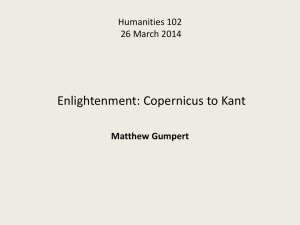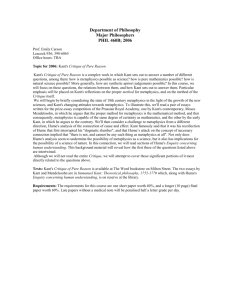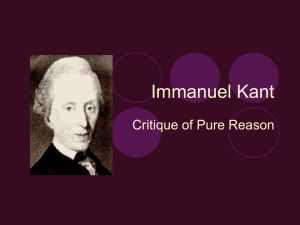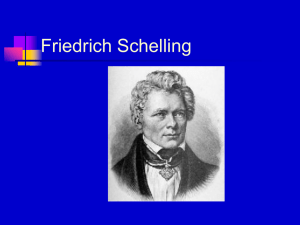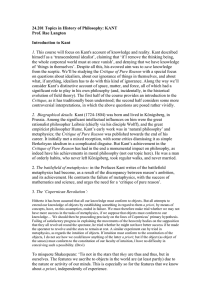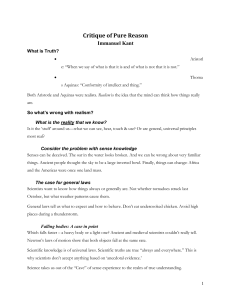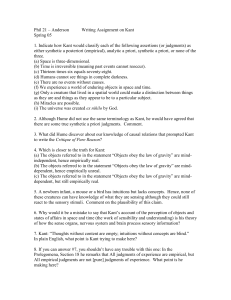Kant
advertisement
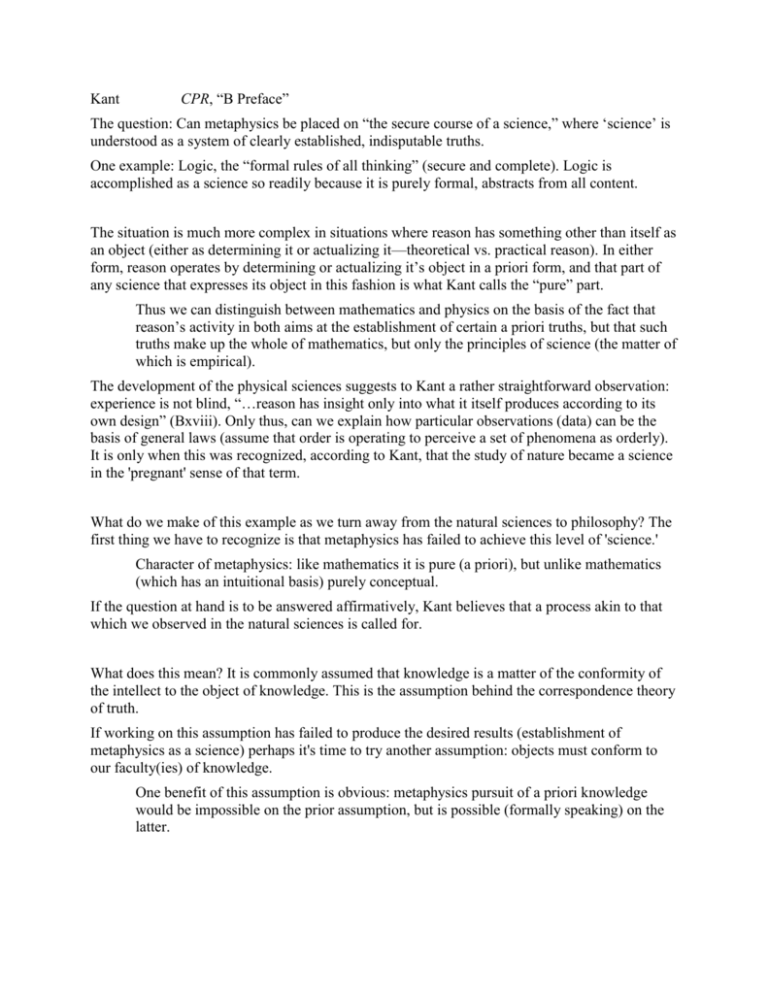
Kant CPR, “B Preface” The question: Can metaphysics be placed on “the secure course of a science,” where ‘science’ is understood as a system of clearly established, indisputable truths. One example: Logic, the “formal rules of all thinking” (secure and complete). Logic is accomplished as a science so readily because it is purely formal, abstracts from all content. The situation is much more complex in situations where reason has something other than itself as an object (either as determining it or actualizing it—theoretical vs. practical reason). In either form, reason operates by determining or actualizing it’s object in a priori form, and that part of any science that expresses its object in this fashion is what Kant calls the “pure” part. Thus we can distinguish between mathematics and physics on the basis of the fact that reason’s activity in both aims at the establishment of certain a priori truths, but that such truths make up the whole of mathematics, but only the principles of science (the matter of which is empirical). The development of the physical sciences suggests to Kant a rather straightforward observation: experience is not blind, “…reason has insight only into what it itself produces according to its own design” (Bxviii). Only thus, can we explain how particular observations (data) can be the basis of general laws (assume that order is operating to perceive a set of phenomena as orderly). It is only when this was recognized, according to Kant, that the study of nature became a science in the 'pregnant' sense of that term. What do we make of this example as we turn away from the natural sciences to philosophy? The first thing we have to recognize is that metaphysics has failed to achieve this level of 'science.' Character of metaphysics: like mathematics it is pure (a priori), but unlike mathematics (which has an intuitional basis) purely conceptual. If the question at hand is to be answered affirmatively, Kant believes that a process akin to that which we observed in the natural sciences is called for. What does this mean? It is commonly assumed that knowledge is a matter of the conformity of the intellect to the object of knowledge. This is the assumption behind the correspondence theory of truth. If working on this assumption has failed to produce the desired results (establishment of metaphysics as a science) perhaps it's time to try another assumption: objects must conform to our faculty(ies) of knowledge. One benefit of this assumption is obvious: metaphysics pursuit of a priori knowledge would be impossible on the prior assumption, but is possible (formally speaking) on the latter. This, then, is what Kant characterizes as the Copernican revolution. Note that it applies not only to the intuition of objects, but also to the apprehension of the concepts that make such intuition possible. What are the implications? The immediate one is that it opens up the possibility of a properly scientific metaphysics. How? 1) Establishes the possibility of a priori knowledge; 2) Opens up the possibility of the establishment of the a priori forms of intuition (Space and Time) and a Deduction of the a priori structures of experience (the categories: the pure concepts of the understanding). A more surprising implication of this thought experiment is that, if true, our knowledge is limited to experience, understood not in the naïve or impoverished sense articulated by empiricism, but in the transcendental sense: that which makes experience as experience, possible. Kant is led, by metaphysical considerations as old as Aristotle, to posit 'the thing in itself" (Ding-an-sich), the unconditioned as such. Kant's metaphysics is thus an immanent one, transcended by the Ding-an-sich. Transcendent to reason, it is nonetheless necessary, according to Kant, to posit it. The fact that this “Copernican” revolution allows us to both maintain the necessity of positing the “thing in itself” as well as to identify a realm of metaphysical cognition independent of it, serves for Kant as a first justification of this revolution. It is this necessity that Husserl refuses, and which marks the most significant distinction between his understanding of transcendental philosophy from Kant's. The keys to understanding this difference lie in the idea of the reduction and Husserl's notion of intentionality. Precisely these are going to be our central concern for the next weeks.


